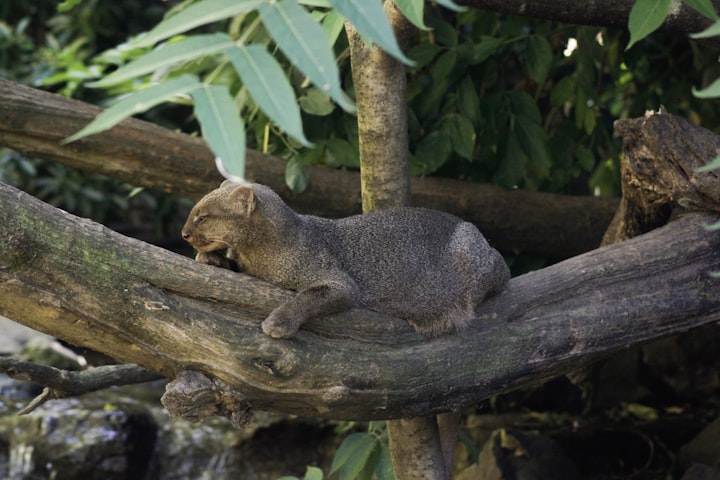
Jaguarundi
The Jaguarundi, also known as the "otter cat" or "eyra cat," is a small wild cat species native to the Americas. They are found in a range of habitats, from dense tropical forests to arid grasslands. Despite their widespread distribution, however, they are not well-known or widely studied, in part because they are relatively elusive and difficult to observe in the wild.
Physical Description
As mentioned earlier, the Jaguarundi is a small wild cat species with a long, slender body and short legs. They have a head and body length of around 53-77 cm (21-30 in) and a shoulder height of around 25-30 cm (10-12 in). They have a unique appearance that sets them apart from other wild cats, with a sleek coat that can be either reddish-brown or grayish-brown in color. Their fur is short, soft, and glossy, and they lack any distinctive markings or patterns. They have small, rounded ears and a short tail, which is typically less than half the length of their body. They have wide-set eyes, which are typically brown or yellow in color. Overall, they have a streamlined, agile appearance, which helps them move quickly and easily through their various habitats.
Behavior and Diet
Jaguarundis are primarily solitary animals, although they have been known to occasionally form small groups. They are mostly active during the day and are skilled climbers, able to move through trees and dense vegetation with ease. They are also known for their ability to swim, and they are often found near bodies of water.
Jaguarundis are carnivorous and primarily feed on small mammals, birds, and reptiles. Their diet can include rodents, rabbits, opossums, squirrels, armadillos, snakes, lizards, and birds such as quails and turkeys. They are also known to eat fish, insects, and even fruit. They are opportunistic hunters and will take advantage of any prey that presents itself, whether on the ground, in the trees, or in the water. They are agile hunters and can take down prey that is larger than themselves. They are also known to cache their food in trees or on the ground, covering it with leaves and debris to protect it from other animals.
Conservation Status
The Jaguarundi is not currently listed as endangered, but it is considered to be a species of least concern by the International Union for Conservation of Nature (IUCN). However, their population is believed to be decreasing due to habitat loss and fragmentation, as well as hunting and trapping for their fur. They are also threatened by roadkill and other human-caused hazards.
Efforts are being made to study and protect Jaguarundis in the wild. These include initiatives to create protected areas, such as national parks and wildlife reserves, where they can thrive without interference from humans. Conservationists are also working to raise public awareness about the importance of these animals and their role in the ecosystem.
Conclusion
In conclusion, the Jaguarundi is a fascinating wild cat species that is well-adapted to its various habitats. They have a unique appearance, with a sleek coat and a long, slender body. They are skilled climbers and swimmers and are primarily active during the day. They are carnivorous and feed on a variety of prey, including small mammals, birds, and reptiles. Although they are not as well-known or widely studied as some other wild cat species, efforts are being made to protect and conserve them. By creating protected areas and raising public awareness, we can help ensure that these amazing animals can continue to thrive in the wild for generations to come.
Thank You






Comments
There are no comments for this story
Be the first to respond and start the conversation.